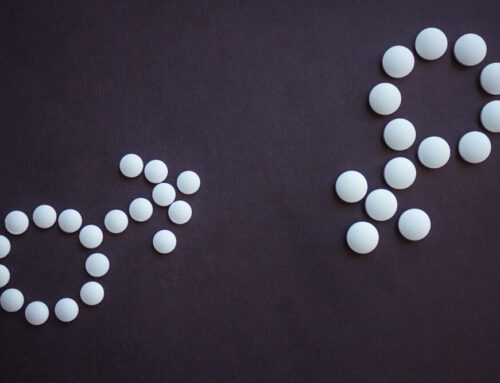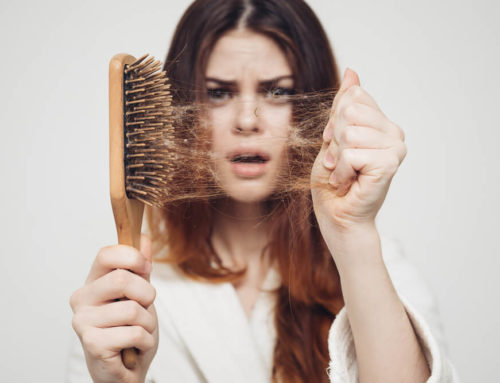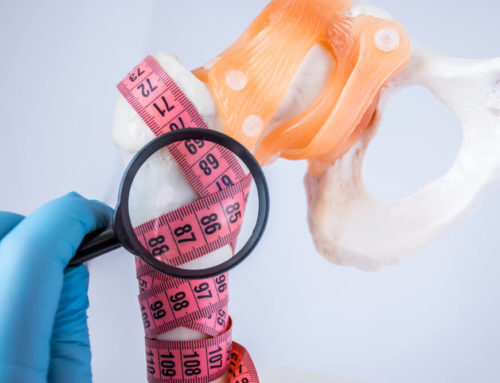Menopause is one of the most common events in a woman’s life.
Yet, as natural as menopause is in our lives, many women still don’t know what to expect, leading to stress and concern.
This is where we come in!
In this article, we address some of the most common questions around these signs of aging, including:
- The signs of perimenopause
- What is the menopause age?
- Menopause symptoms in your 40s, 50s, and beyond
- How long does menopause last?
Each of us will have a different journey as we go through menopause, but knowing what is happening to our bodies can help ease the stress of our experience.
What Are the 3 Stages of Menopause?
Menopause is a gradual process, considered one of the natural signs of aging. It is commonly broken into 3 different stages: perimenopause, menopause, and postmenopause.
What Is Perimenopause?
This is the first stage of your journey through natural menopause and is marked by hormonal changes. It means, “around menopause,” and is an indicator of the end of your reproductive years.
What Is Menopause?
 Menopause is reached when a woman has not had a menstrual cycle for one full year.
Menopause is reached when a woman has not had a menstrual cycle for one full year.
There are many signs and symptoms leading up to this point that serve as early warnings that your body is no longer producing the hormones estrogen and progesterone.
What Is Postmenopause?
This is the period in your life following menopause – and for the rest of your life. Many of your menopausal symptoms may ease up, but this is not always the case. This is also a period of time where you need to be aware of medical conditions that come with producing lower levels of estrogen, such as heart disease and osteoporosis.
What Is My Menopause Age?
The age at which you start going through menopause is not set.
The average age in the United States is 51, but every woman will experience this time in her life differently, which is why talking to qualified specialists in women’s health is so important.
Generally speaking, women start to experience menopause anywhere from the ages 40 to 58, but some see these signs of aging in their 30s, and some as late as in their 60s.
An indicator of your menopause age is when your mother or older sister(s) experienced the three stages. Experts believe family history is a significant predictor of when you yourself will go through the change of life.
Many of the signs of menopause can be present early on, and become heightened as you get closer to your 50s, as they are directly related to your hormone levels.
Menopause Symptoms in Your Early 40s
For the most part, women will not start seeing changes until their mid-40s, but of course, this is not the case for all of us.
Menopause before the age of 45 is generally considered, “early menopause,” and before 40, “premature menopause.” In either of these situations, other factors can play a role, such as:
- A history of smoking
- Family history of early or premature menopause
- Previous surgeries on the uterus or ovaries
- Cancer treatments
Just because it’s not as common to experience the signs of perimenopause in your early 40s doesn’t mean you shouldn’t take changes to your cycle seriously.
This is a great time to consult with specialists like us to ensure you don’t have any other health conditions going on. This is only one of the signs of aging, so it’s best to make sure!
Menopause Symptoms in Your Mid-to-Late 40s
Here is where you are most likely to experience the signs of perimenopause, where your ovaries produce fluctuating levels of estrogen. With this change in your hormones, your body will react in many different ways.
Skipping a period, or having them closer together is more common at this stage, as is a heavier or lighter flow than usual.
Some of the most common signs of perimenopause include:
- Menstrual irregularity
- Vaginal dryness
- Hot flashes
While these are the more common symptoms, women can also begin early stages of the symptoms of full menopause, as we see below.
Keep in mind – you can still get pregnant in perimenopause, so ensure you are still taking the proper precautions!
Menopause Symptoms in Your 50s
Generally, this is when most women will find themselves in menopause. Your body stops releasing eggs and you stop having menstrual periods.
Some of the most common signs that you are in menopause:
- Hot flashes or flushes
- Changes of mood/mood swings
- Night sweats
- Vaginal dryness
- Trouble concentrating
- Chills
- Issues with sleeping
- Weight gain (Your metabolism slows down)
- Thinner hair and dryer skin
- Losing breast fullness
- Weakened bladder muscles (Leading to urinary leakage)
It is also common in menopausal and postmenopausal stages to have less interest in sexual intercourse, largely due to reduced sensation in the vagina and the dryness that accompanies these stages. Sex can simply be less arousing, and more painful.
Menopause Symptoms in Your Mid-50s and Beyond
At this stage, most women are in the postmenopausal phase of their lives, but may still experience symptoms from the menopausal stage, such as:
- Hot flashes or flushes
- Insomnia
- Incontinence issues
- Vaginal dryness
- Confusion
- Mood swings
Because you now have much lower levels of estrogen, you’re at a higher risk for medical problems such as osteoporosis, bone fractures, and cardiovascular diseases, such as heart disease. Talk to us about all of your medical options at this stage.
How Long Does Menopause Last?
“How long does menopause last?” is definitely one of the most commonly asked questions, but there is no hard and fast rule about this.
The length of each stage depends on each individual and depending on when you start perimenopause, you could be in that early stage for years before you transition to full menopausal symptoms.
According to a study, the duration of menopausal symptoms such as night sweats, hot flashes and flushes (otherwise known as Menopausal Vasomotor Symptoms, or VSM), lasted an average of 7.4 years in those studied.
The Role of Estrogen in Menopause
 The symptoms you feel throughout your menopause journey will change depending on how much estrogen you are producing.
The symptoms you feel throughout your menopause journey will change depending on how much estrogen you are producing.
Simply put, changes in your hormone levels are what cause your specific symptoms on your menopause journey.
The hormone estrogen plays an especially large role here. For example, estrogen directly affects our vaginal blood flow and lubrication.
So when we have less of that, things like intercourse can become more painful, and if we aren’t properly lubricated, can cause damage to our vaginal lining and lead to other issues such as urinary tract infections (UTIs), yeast infections, and vaginitis.
Higher levels of estrogen can bring on symptoms like:
- Bloating
- Tenderness in your breasts
- Heavy menstrual bleeding
On the flip side, lower levels of estrogen can bring on:
- Hot flashes and night sweats
- Headaches
- Palpitations
- Insomnia and fatigue
- Bone loss
- Vaginal dryness
Talk to the Experts About Menopause
Not since puberty have we faced so many hormonal changes!
Menopause is distinctly different for each woman, but the signs and symptoms remain the same. We are experts in the women’s health field, qualified to help you at any stage of menopause. Whether for treatments, advice, or medical attention, we are dedicated to guiding and supporting you throughout your journey.
Are you experiencing any of these signs or symptoms? We want to hear from you! Call us today or schedule an appointment with our 24/7 online system. We are here to help!










